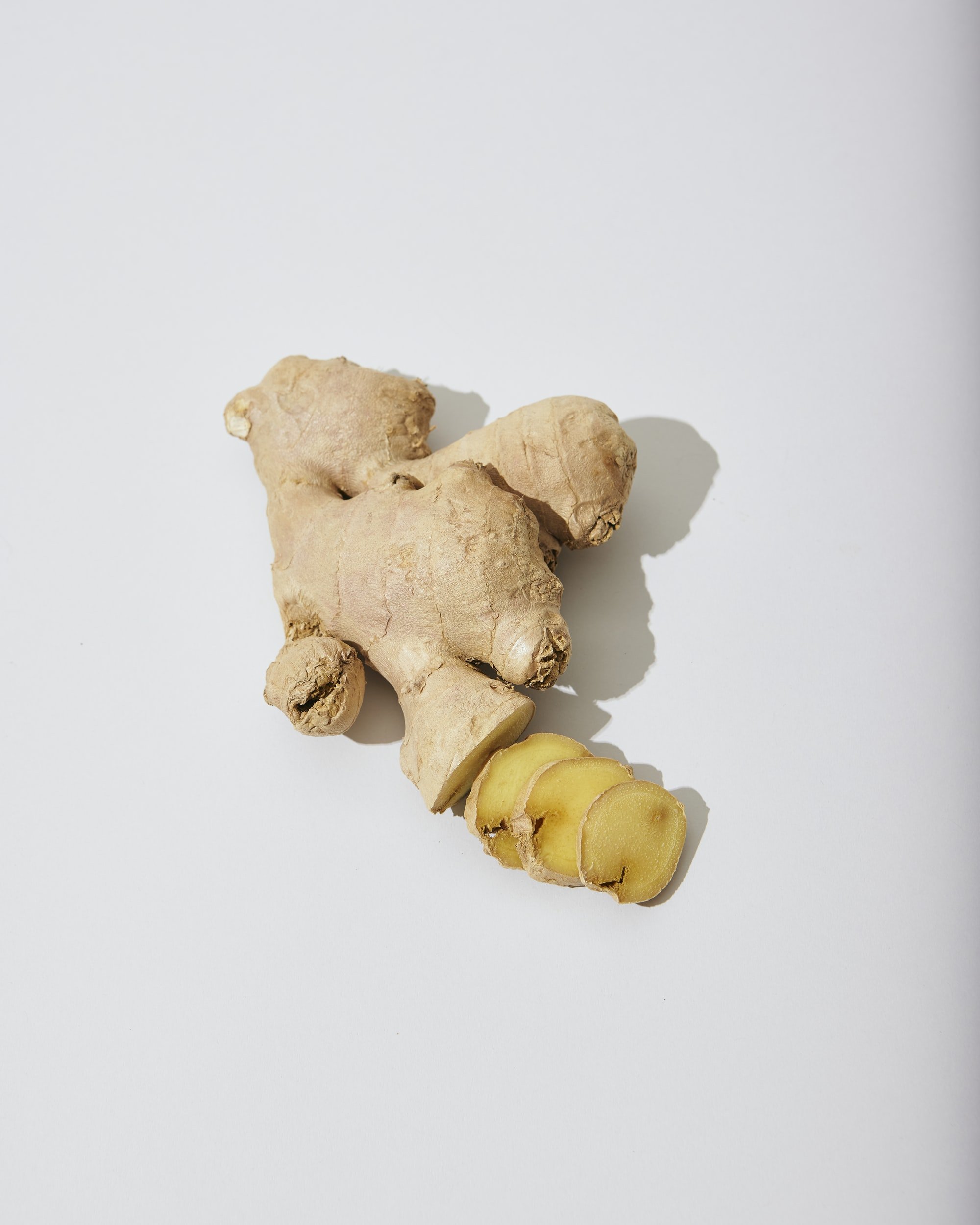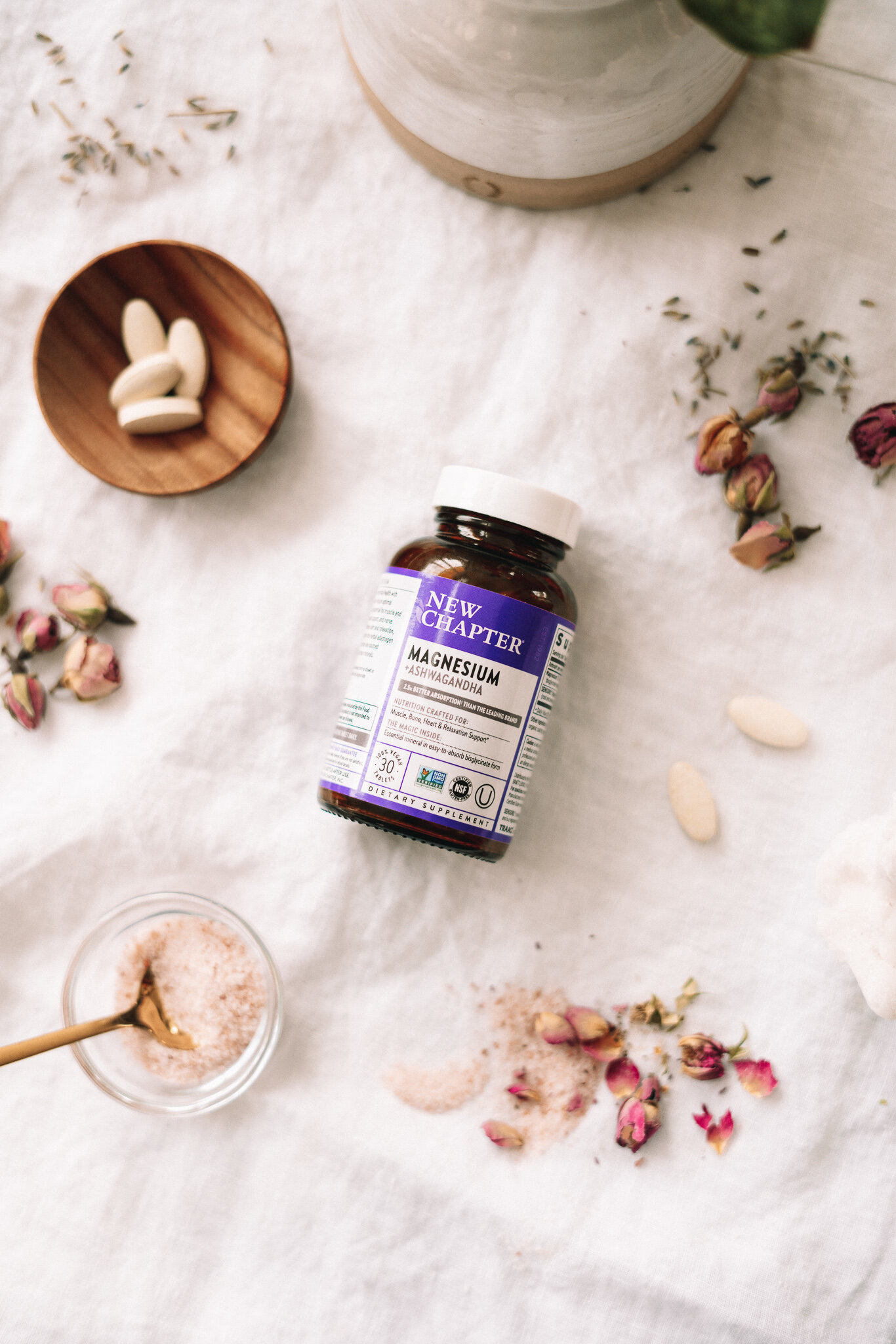Morning sickness is one of the worst, and most common, side effects of early pregnancy affecting 3 out of every 4 women. In this guide we will cover what causes morning sickness, as well as natural morning sickness remedies that you can try and will hopefully bring you some relief.

My Severe Morning Sickness Experience
Even as a dietitian with experience working with pregnant women, it wasn’t until I experienced morning sickness myself that I truly was able to comprehend just how tough those early days of pregnancy really can be.
Since it is also so common, I often found myself wondering if I just wasn’t handling the nausea well, but after a month of completely debilitating nausea/vomiting I knew that what I was experiencing was most likely a more severe form of morning sickness known as hyperemesis gravidarum, which lasted for about 20 weeks, and effects 3% of pregnant women.
Since my morning sickness lasted for about half of my pregnancy I had plenty of time to try what felt like all the natural morning sickness remedies under the sun, some of them I knew from my experience as a dietitian, and some I found by trial and error.
While I did find certain natural morning sickness remedies to be helpful later on, because my form of morning sickness was so severe I did need to take prescription nausea medication to maintain a healthy state of hydration and weight.
If you feel that your morning sickness is interfering with your day-to-day life and causing weight loss/dehydration you need to make sure your doctor is aware and discuss what other optional may be available to help keep you and baby healthy.
While I am on the other side of it all now with a beautiful baby girl, who was well worth it all, I hope that some of my personal research into natural morning sickness remedies may be able to help others find some relief. Even though ultimately morning sickness really is mostly a waiting game that eventually will run its course, there absolutely are ways that you can help make it a little more bearable in the meantime.

What Causes Morning Sickness
It is still unclear as to what exactly causes morning sickness but most healthcare professionals will attribute it to a few key factors.
- Dramatic changes in hormone levels, specifically hCG, estrogen and progesterone
- Genetic predisposition. If your mom, sister, aunt, cousin, etc. all had tough rounds of morning sickness then you may be more likely to experience it yourself.
- Gastrointestinal changes caused by shifting hormone levels can cause heartburn, GERD, and constipation in pregnant women all of which can impact symptoms of nausea and vomiting
- Heightened sense of smell is something many pregnant women will report and can make morning sickness symptoms worse. I couldn’t stand the smell of coffee, fish, or any meat being cooked in our home for months!
- Moms who are pregnant with twins or more report more intense and longer lasting morning sickness symptoms.
When Does Morning Sickness Start And How Long Does Morning Sickness Last?
Morning sickness typically starts between weeks 6-8 and will resolve between weeks 14-16, or around the end of the first trimester for most women. Unfortunately, for some women morning sickness can last longer or even throughout the entire pregnancy, but these cases are not very common.
If this is you, I truly feel for you mama, I’ve been there, and I hope you know how much of a rock star you truly are! That little baby will be worth it, and I promise you will not be nauseous forever.
Having A Hard Time Eating A Healthy, Balanced Diet? You’re Not Alone
The first trimester for most pregnant mamas is NOT going to be the time when you are able to eat a perfectly balanced, healthy diet.
Most moms will experience the worst morning sickness during their first trimester, which can make eating a variety of healthy foods difficult and can cause a lot of anxiety if you find yourself in a position where you are having a very hard time eating.
This is why I want to help put your mind at ease, because if you are struggling with a tough case of morning sickness all you really need to focus on is making sure that you are staying hydrated, taking your prenatal vitamins, and eating whatever foods you find you can actually tolerate.
If you have been taking prenatal vitamins and eating a nutrient rich diet the months prior to your pregnancy, those nutrient stores will be what your body utilizes most in the early stages of pregnancy, and continuing your prenatal vitamins will help cover any gaps in your nutrition due to morning sickness.
So instead of worrying about maintaining the perfect healthy diet during this phase (that will be nearly impossible), focus on trying to find foods that will help you feel better, or at least can be tolerated.

Foods That Can Help With Morning Sickness
Unfortunately, morning sickness can create a vicious cycle where you feel too nauseous to eat, but an empty stomach can also make nausea worse.
To help break this cycle the following morning sickness remedies through food tend to be the most effective, and agreed on by health professionals and moms who have dealt with morning sickness.
- Eat small frequent snacks, even just a few bites every hour or whatever you can tolerate
- Avoid foods with a strong smell
- Choose high carbohydrate foods like crackers, toast, and rice
- Sip on broth and other electrolyte drinks to help hydrate and provide electrolytes
- Avoid eating and drinking together, space small snacks/bites with sips of fluid every 30 minutes
- Try sour foods like sour candies, more sour fruit, and lemonade
- Try to eat some fat/protein rich foods, which will help keep your blood sugar balanced, and can help reduce nausea/vomiting symptoms
Personally, I found that bland foods with very little smell, and foods that didn’t require too much chewing were what I tended to tolerate the most. I would always keep a banana and some toast on my nightstand to take small bites of throughout the night, and before I got out of bed, which really helped me be able to get some sleep when my nausea was at its worst.
Some of my other go to foods were:
- Sour foods (lemonade, sour candy)
- Fresh fruit (kiwi and bananas were my go-to’s)
- Plain white rice
- Saltines/plain crackers
- Potato chips and pretzels
- Toast with butter
- Lemon water
- Electrolyte drink
- Broth
- Scrambled eggs
- Oatmeal

Supplements To Consider For Morning Sickness
Supplements can sometimes be tough to tolerate when you are hit with morning sickness, but they are also important for filling in any nutritional gaps, and can help reduce morning sickness symptoms for some people.
My best advice when it comes to taking supplements during the first trimester, is to try and spread them out throughout the day and choose times when you notice your nausea/vomiting is at its least.
Prenatal Formulated To Help With Nausea
One of the first recommendations I make to newly pregnant mamas is to choose a prenatal supplement that has been formulated to help with nausea. Not all prenatal supplements are created equal (you can learn more about how to choose the best prenatal supplement here), and some can really cause an upset stomach.
I love this prenatal Once Daily Prenatal Multivitamin that is specifically formulated with with a clinical dose of ginger for nausea relief, and a soothing digestive blend of safe herbs like lemon balm, peppermint, and raspberry. It also includes methylfolate, a much more bioavailable form of folate, and choline, both of which are essential for baby’s brain and neural tube development.*
Omega-3 DHA Supplement
Omega-3 fatty acids are essential fatty acids that we do not produce naturally and need to consume through food. While every person needs and benefits from omega-3 fatty acids in their diet, for pregnant women they are especially important, and specifically the omega-3 fatty acid DHA.
Throughout your pregnancy and as your baby grows, DHA will accumulate to help support brain, eye, and nervous system development. Once a baby is born, the DHA that had accumulated in your baby throughout your pregnancy will help support a healthy immune system, vision, and cognitive development — pretty cool right?!
At a minimum, pregnant women should be taking 200mg DHA throughout pregnancy and consuming omega-3 rich foods high in DHA like wild caught salmon. But since most moms with morning sickness are not going to be able to stomach the smell of fish and other omega-3 rich foods, taking an omega-3 DHA supplement is a great option to ensure you are getting all the omega-3 fatty acids your baby needs for development.
The main issue I have with many omega-3 DHA supplements is that they are often large pills or liquid oils that can be hard to swallow and often leave a fishy aftertaste.
This is not ideal for someone struggling with morning sickness, which is why I love the Wholemega Fish Oil For Moms that comes in small, easy to swallow pills, and has no fishy aftertaste. (we should mention some additional benefits like: Plus I also love that is made from sustainably-sourced 100% Wild Alaskan Salmon oil delivering 17 whole Omega fatty acids, Vitamin D3 and Astaxanthin.*
Magnesium glycinate
Magnesium is a calming mineral that can also help with improving normal digestion function. Since constipation is a common symptom during pregnancy that can make nausea worse, supplementing with magnesium can help to improve digestion and may reduce symptoms of nausea.*

Other Natural Morning Sickness Remedies
If you find yourself striking out with some of the above recommendations for natural remedies for morning sickness, then the following herbal and vitamin supplements could be helpful.
Ginger Capsules
Ginger is one of the few herbal remedies that has been clinically shown to reduce the symptoms of nausea and vomiting in pregnancy. While you can absolutely buy fresh ginger to steep in tea, I like these ginger capsules that provide over 2500 mg of ginger in one capsule. This is a great option for convenience and for someone who can’t really stomach the taste of ginger. As always you should always work with your doctor before beginning any highly concentrated herbal supplement.*
Vitamin B6
Vitamin B6 has been shown to be a safe and effective therapy for nausea and vomiting in pregnant women that can easily be added to help reduce some of the symptoms of morning sickness. Studies have found that 25mg taken three times a day has a significant impact on nausea/vomiting symptoms when compared to pregnant women who do not take vitamin B6 for morning sickness.
Additionally, your doctor may recommend combining vitamin B6 with unisom (doxylamine), if vitamin B6 alone does not help to improve your symptoms as recommended by the American College of Obstetricians and Gynecologists.*
Lemon Essential Oil
Keeping lemon essential oils nearby can help when nausea strikes. Try diffusing some lemon essential oil when you find you tend to be the most nauseous.

Safe Herbs For Morning Sickness
Herbs have been used as natural remedies for morning sickness and in pregnancy for centuries, and while there is limited scientific evidence to support the use and effectiveness of herbal morning sickness remedies in pregnancy (mostly because research is limited on pregnant women), there is good evidence on the safety of a few common herbs that can help with nausea and vomiting symptoms.
- Ginger
- Chamomile
- Fennel
- Mint
All of the herbs above have been traditionally used to support pregnant women, and are safe to add to your daily routine. Some of my favorite ways to use these herbs to help reduce morning sickness symptoms are in the form of tea, flavor water, ginger/mint candy, and soups.
When To Call Your Doctor
While most cases of morning sickness will be able to be tolerated, and should go away by the end of the first trimester, if you are noticing any of the following symptoms or you are finding that your morning sickness is making it hard for you to work or care for yourself/your family then it is time to call your doctor.
- Dehydrated
- Dizzy
- Repeat vomiting that can’t be controlled
- Minimal food intake due to nausea
- Weight loss
Sometimes an over the counter medication or IV fluids may be necessary, even if only for a short period of time to help you stay hydrated and nourished until the morning sickness begins to lessen. Remember your health care team is there to support you, so never hesitate to reach out for help if you need it.
Hopefully some of these tips will help you to feel better and make your morning sickness more manageable. Often finding something that works will take time and some trial and error, but I promise that you won’t feel nauseous forever, and that perfect baby will make everything worth it. Hang in there mama, you’ve got this!
*These statements have not been evaluated by the Food and Drug Administration. This product is not intended to diagnose, treat, cure, or prevent any disease. The information in this article should not be taken as personalized medical advice. Always consult with your doctor before beginning any new supplement regimen.





















